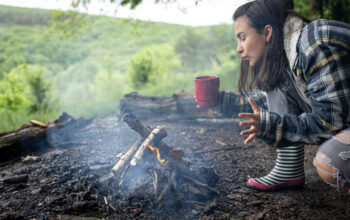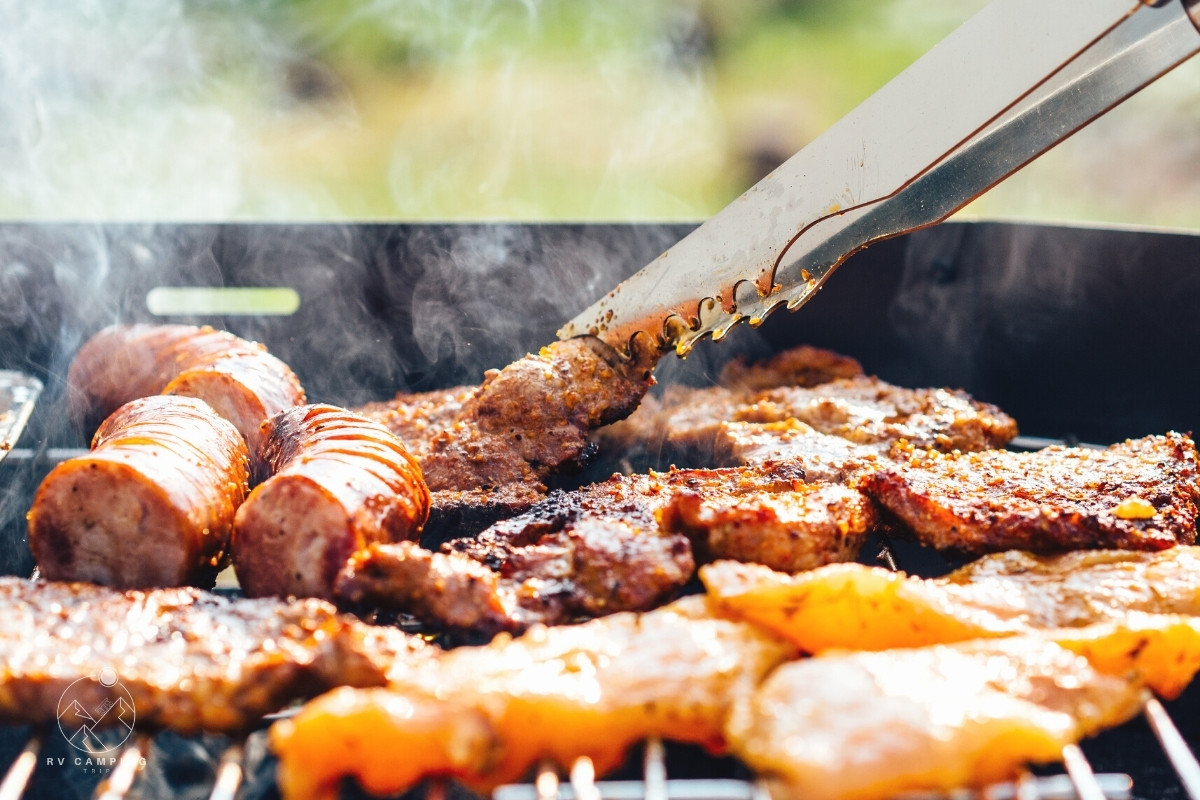RV camping is a wonderful way to enjoy the beautiful summer months, providing a unique opportunity to explore nature while enjoying the comfort and ease of your home on wheels. As you plan your trip this season, it is vital to prioritize food safety.
Choosing to make food safety a priority can help ensure that you and your family and friends can enjoy your food while mitigating the chances of suffering from foodborne illnesses.
Food Safety During RV Camping
Learn more about essential food safety tips to follow while RV camping, allowing you to savor every moment of your outdoor experiences by reading below!
Plan Your Meals and Storage
Before hitting the road, consider creating a detailed meal plan that includes a variety of foods to keep your diet balanced and nutritious: doing so can also help prevent overpacking and wasting ingredients.
When storing food, ensure raw meats and perishable items are separate from ready-to-eat foods. Store raw meats in tightly sealed containers or resealable bags to prevent cross-contamination with other food items.
If you have it, utilize the RV’s built-in refrigerator and freezer to maintain safe temperatures for perishable items.
Pack and Transport Food Safely
When packing food for your RV trip, consider using airtight containers. Not only can airtight containers prevent spills, but they can also protect your food from uninvited guests like insects and rodents. Store food in a cool, dry place within the RV to maintain freshness.
When transporting food, keep perishables in a refrigerator or store them in a cooler with ice packs to ensure they remain at safe temperatures during your journey.
“Foodborne bacteria are happiest at temperatures between 90 and 110ºF (32 to 43ºC),” note food safety lawyers at The Lange Law Firm, PLLC, “the summer heat provides perfect conditions for bacterial growth.”
Prioritize Cleanliness and Hygiene
Proper hygiene is crucial to prevent foodborne illnesses during RV camping. Wash your hands frequently with soap and clean water, especially before preparing and eating food. If clean water is scarce, bring hand sanitizers with at least 60% alcohol to ensure proper hygiene.
Clean and sanitize all cooking utensils, cutting boards, and surfaces both before and after use.
Be mindful of using the same hands or utensils to handle different foods. Thoroughly clean any surfaces or utensils that come into contact with raw meat or eggs before using them for other ingredients.
Disposable wipes and biodegradable cleaning products are convenient options for maintaining cleanliness in the RV kitchen area if extensive washing is unavailable.
Cook Thoroughly
Invest in a reliable food thermometer to ensure that meats, poultry, and seafood reach safe temperatures to help eradicate dangerous bacteria that can cause foodborne illnesses.
The United States Department of Agriculture (USDA) provides guidelines for safe internal temperatures:
- Poultry: 165°F (73.9°C)
- Ground meats: 160°F (71.1°C)
- Fish: 145°F (62.8°C)
- Pork and ham: 145°F (62.8°C)
- Leftovers: 165°F (73.9°C)
Norovirus, salmonella, clostridium perfringens, campylobacter, and staphylococcus aureus (staph) are the most common foodborne illnesses that cause 48 million people to get sick every year.
Dispose of Waste Properly
Responsible waste disposal is essential for maintaining a clean and safe RV camping environment for everybody. Seal food waste in secure containers to prevent attracting wildlife and minimize odors.
Follow designated campground guidelines for waste disposal, and consider using compostable trash bags for organic waste.
Stay Hydrated
Staying hydrated is vital for overall health and well-being, especially during outdoor activities in the summer sun. Carry an ample supply of clean drinking water in your RV to ensure everyone has access to safe and refreshing hydration throughout the trip.
Food Safety Means More Fun
RV camping is an exciting way to connect with nature and your loved ones this summer. By prioritizing food safety, you can enjoy your favorite meals on the road without compromising you and your family’s health.
From meticulous meal planning to proper cooking techniques and waste disposal, every step you take toward ensuring food safety contributes to a safe and enjoyable RV camping experience. Happy and safe RV camping!




